On 23 August, the Renaissance Krasiczyn Castle near Przemyśl saw the launch of the fourth edition of the Polish-Hungarian Summer University organised by the Wacław Felczak Polish-Hungarian Cooperation Institute. The leading theme of this year's Summer University is the future of Europe. The agenda includes speeches by politicians from the front pages of newspapers, lectures concerning the future of Europe, the signing of the Krasiczyn Declaration, deliberations on the aspects of politics and economy after the COVID-19 pandemic, as well as discussions about culture and the challenges of contemporary education. There will also be plenty of opportunities to learn the language of the friendly nations and take part in sporting activities, namely the Felczak Cup football match or a game of Teqball, which statistically is the fastest growing sport in the world.
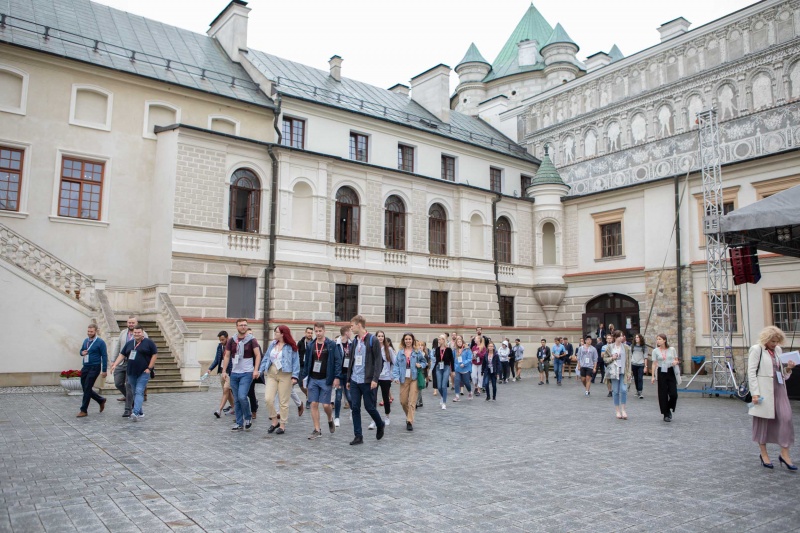
The Castle of Krasiczyn, once guarding an important crossing on the San river, is one of the most beautiful monuments of the Polish Renaissance. It is within these walls that the Polish-Hungarian School of Leaders is taking place for the fourth time. Photo by www.mymedia.pl
The Polish-Hungarian Summer University – School of Leaders – is an annual get-together. Young people from large cities such as Budapest, Kraków or Warsaw, as well as guests from smaller towns, are all invited to participate. They include mainly students from Poland and Hungary as well as individuals active in the public life of both these countries. Every year for several days in a row, participants are given the opportunity to acquire knowledge from important politicians, renowned academic lecturers, experts, editors-in-chief, etc.
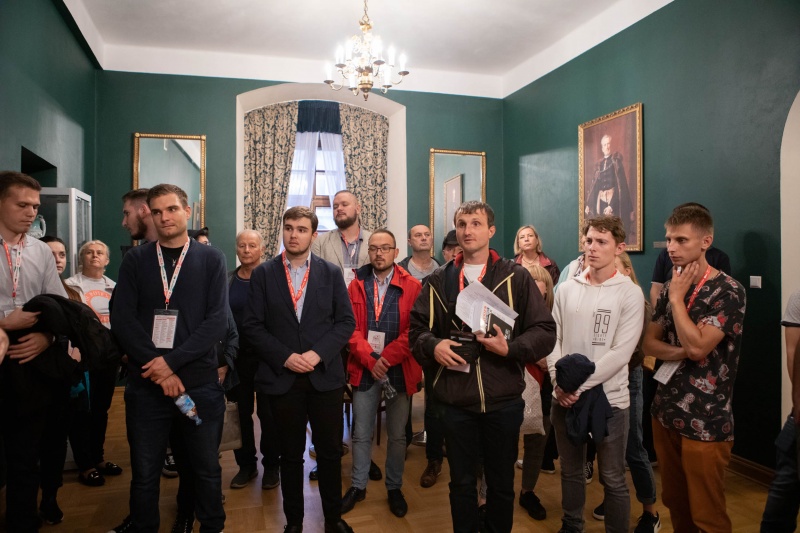
In the course of the Summer University, young Poles and Hungarians can count not only on learning large quantities of information but also on discovering a certain way of thinking about the world around them. Photo by www.mymedia.pl
On Monday, young Polish and Hungarian citizens had an opportunity to become better acquainted with the figure of Władysław Felczak – a historian, expert on Hungary and Central Europe, a soldier of the Polish Underground State, a legendary wartime courier and an emissary for the Government of the Republic of Poland in exile. His story was recalled by Maciej Szymanowski, Director of the Wacław Felczak Polish-Hungarian Cooperation Institute. (CLICK here to read more about Professor Felczak).
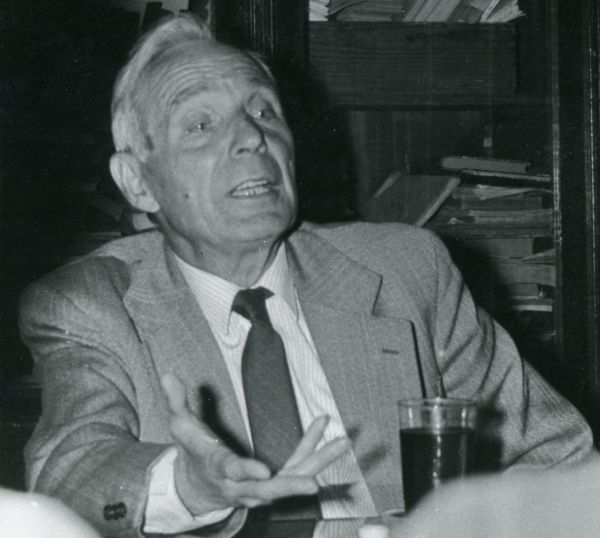
After the war, Wacław Felczak also lectured in Hungary, inspiring the birth of the democratic opposition. The incumbent Hungarian Prime Minister Viktor Orbán was influenced by Wacław Felczak, among others. Photo from archives.
On Tuesday, Hungarian Minister of Justice Judit Varga will deliver a message to the participants of the Summer University on the occasion of holding a panel dedicated to the impact of the rule of law on everyday life, with the participation of Tymoteusz Zych, PhD, Rector of Collegium Intermarium. Polish Minister of Infrastructure Andrzej Adamczyk will present the latest news on the construction of Via Carpatia, the transport backbone for the Three Seas countries. On Wednesday, the panel discussion of the Summer University will be attended by the former Speaker of the Sejm Marek Kuchciński, who during last year's School of Leaders was honoured with the title of the Ambassador of the Wacław Felczak Institute. The Krasiczyn Declaration will also be signed on that day.
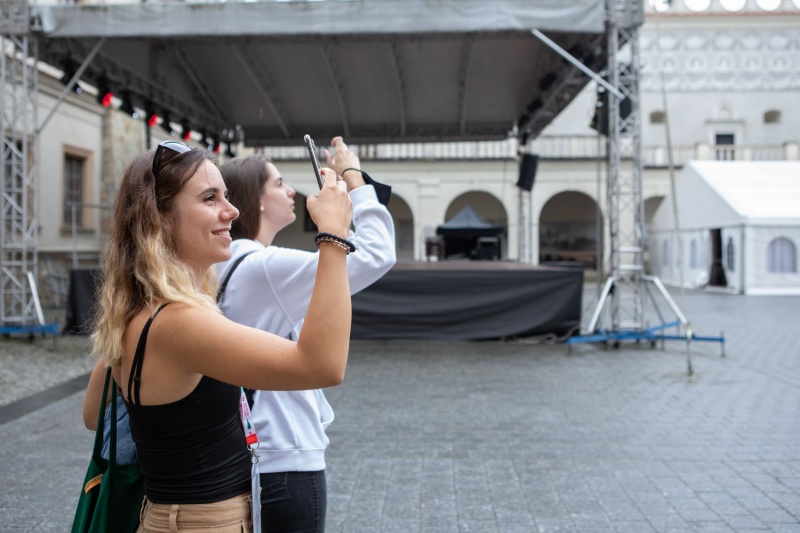
The young guests include future journalists as well as future political scientists, politicians, and perhaps future ministers and prime ministers. Photo by www.mymedia.pl
As noted by Professor Maciej Szymanowski, the Director of the Wacław Felczak Institute, young Poles and Hungarians can count not only on acquiring large quantities of information but also on discovering a certain way of thinking about the world around them. The young guests include future journalists as well as future political scientists, politicians, and perhaps future ministers and prime ministers. Members of the future elites of Poland and Hungary will discuss, among others, what unites us and how our nations can together change Europe and the European Union.
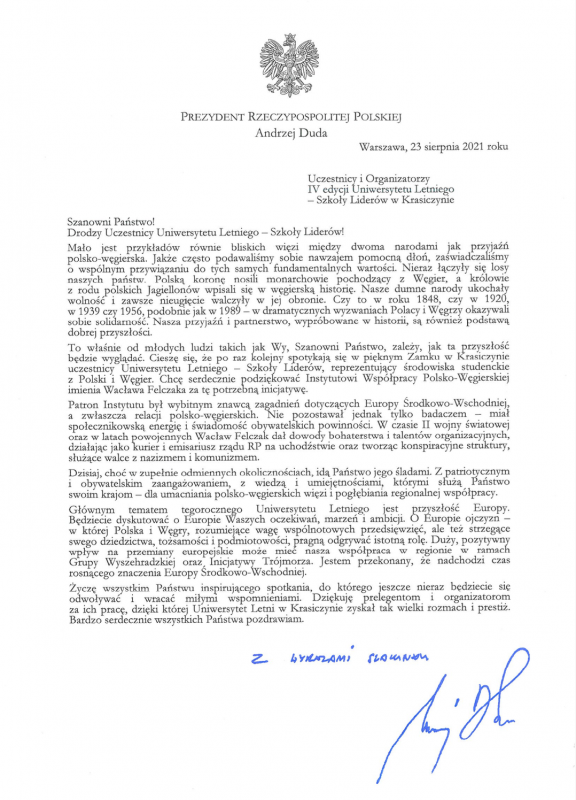
A scan of the letter from the President of the Republic of Poland Andrzej Duda to the participants and organisers of the fourth edition of the Summer University – School of Leaders in Krasiczyn
This year, as in the previous year, the participants and organisers of the fourth edition of the Summer University – the School of Leaders held in Krasiczyn, received a letter from the head of the Polish state. In his letter, President Andrzej Duda emphasised that "there are few examples of such close ties between two nations as the Polish-Hungarian friendship. Time and time again, we have been giving each other a helping hand and validated our shared commitment to the same fundamental values. The fates of our countries have come together on many occasions. The Polish crown was worn by monarchs originating from Hungary, and the kings representing the Polish Jagiellonian dynasty played a part in Hungarian history. Our proud nations worship freedom and have always fought relentlessly to defend it." – President Andrzej Duda remarked, emphasising that the future of Poland, Hungary and the whole of Europe will depend on young people. "You will be discussing the Europe of your expectations, dreams and ambitions. A Europe of homelands – in which Poland and Hungary wish to play an important role while understanding the importance of collaborative projects and protecting their heritage, identity and subjectivity. Our cooperation in the region under the Visegrád Group and the Three Seas Initiative can have a major positive impact on European change. I am convinced that the importance of Central and Eastern Europe is only going to grow." – underlined the President of the Republic of Poland in his letter.
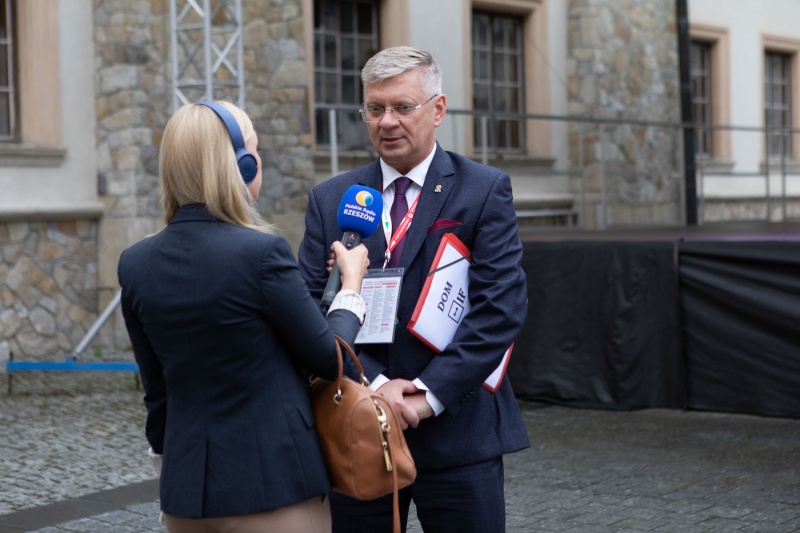
The Director of the Wacław Felczak Institute, Maciej Szymanowski. Photo www.mymedia.pl
Culture, sport, friendship and love
This year's Summer University will run from Monday through Friday. During the week, many lectures, panels and discussions on current social, political and civilisational issues are scheduled to be held. The School of Leaders will also host diverse cultural activities: concerts, exhibitions, discos, film screenings, and even folk dance lessons with live Hungarian music.
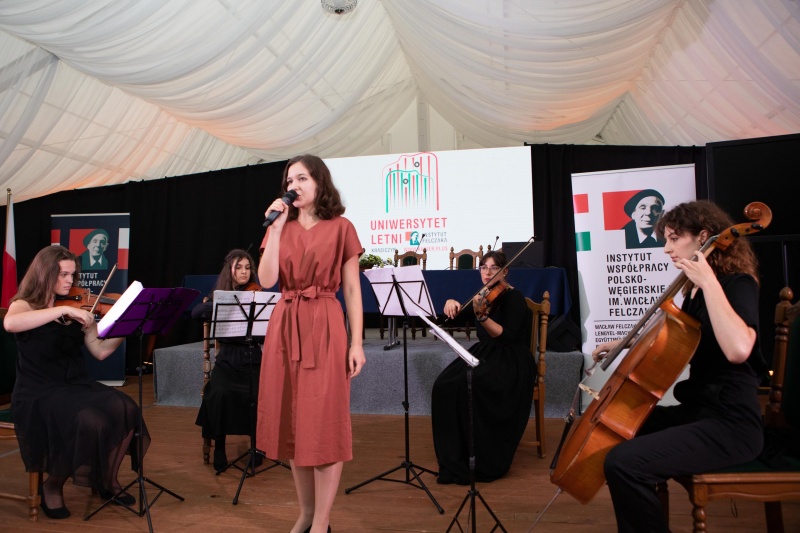
Quartetto Ardente and Karolina Ambroziak. Launch of Summer University 2021. Photo: www.mymedia.pl
The participants will also be given the opportunity to try their hand at sporting activities. The event agenda includes the Felczak Cup football match, a bike race, self-defence lessons and a Teqball game between the Polish and Hungarian national teams. Teqball – statistically the fastest growing sport in the world – was officially invented in 2014 by two Hungarian football enthusiasts: Gábor Borsányi and Viktor Huszár.
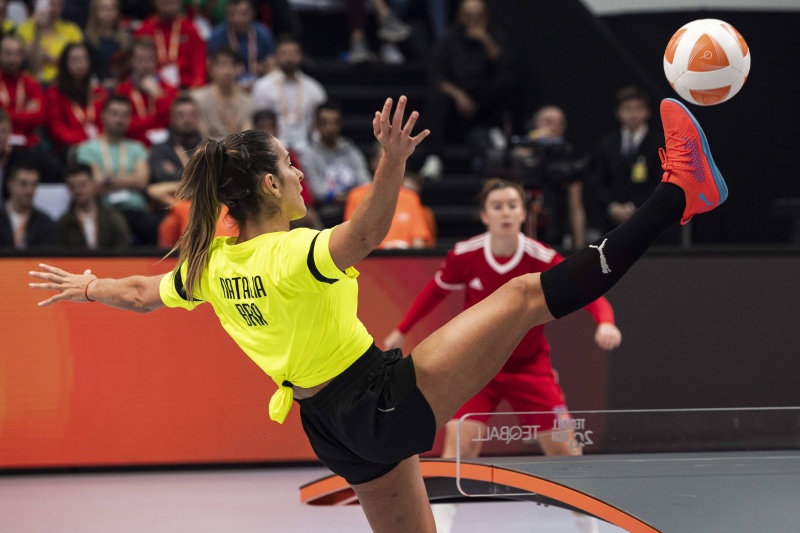
The final of the Teqball World Championships, a combination of football and table tennis, between Hungary and Brazil in 2019. Photo Marton Monus / MTI / PAP / EPA
Summer Universities of the Wacław Felczak Polish-Hungarian Cooperation Institute have been organised periodically since November 2018, when the Polish-Hungarian School of Leadership was held in Krasiczyn. Almost a thousand people have participated in the three editions of the Summer Universities to date.
During the previous editions of the Summer University, young Poles and Hungarians very quickly made international friendships. The history of the annual meetings in Krasiczyn also features cases where Polish and Hungarian guests of the Summer University found the love of their lives while residing in the Renaissance castle.
(JAP)
